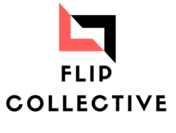
Essential products that may be swapped out for others of the same kind are known as commodities. Commodities include food, fuel, livestock, metals, and precious stones. These assists broaden a portfolio’s diversification beyond “safe” conventional equities. Futures contracts, exchange-traded funds, and options funds are all viable choices for those interested in commodity trading online. The term “commodities exchange” may apply to online or traditional marketplaces. It may also be a company or organisation set up legally to regulate the trade of standardised commodities contracts or investment products.
Various Goods
The fundamental idea of supply and demand underpins the commodities market. Commodity trading online on global markets may be broken down into four broad groups: energy, cattle and meat, agriculture, and metals.
Metals
Silver, platinum, copper, and gold are all examples of metals that may be used as commodities. Precious metals are a popular investment choice because of their stability and portability.
Energy and Agriculture
Market pricing for commodities in the energy industry is affected by any change in output by the Organisation of the Petroleum Exporting Countries and new technology advancements in alternative energy sources.
Opportunities to capitalise on growing agricultural commodity prices are there because of both rising demand and a shortage of agricultural supplies. As most products are seasonal, this industry may be unpredictable.
Products of Animal Origin
Pig bellies, cattle, lean pigs, and feeder cattle are all examples of marketable commodities.
Trading Materials
You need to be familiar with commodities exchange trading. The commodity exchange is a supervised market for buying and selling various commodities. Speculators can trade in Futures contracts or take physical delivery of commodities. One definition of a futures contract is an agreement to buy or sell a certain amount of a commodity at a specific price by a certain date in the future.
Various approaches may be used to trade commodities. There are benefits and drawbacks to using such techniques.
Futures Markets for Commodities
The futures market facilitates commodity trading via the purchase and sale of contracts. It’s a deal between two investors based on a commodity’s anticipated future value. You’ll need to open a brokerage account with a niche firm if you want to engage in such transactions.
Buying Stuff That Exists
When you buy a futures contract, you are not purchasing much oil or cattle. As such, it is a pure wager on price movements. Investors may take physical ownership of their precious metals or jewellery purchases.
Stocks
Those interested in purchasing commodities might do so via the purchase of commodity-related stocks. When compared to futures contracts, the volatility of stocks is far lower. Stocks are simple for investors to purchase, keep, monitor, and trade. You might concentrate your holdings on a particular market segment. Instead of purchasing shares of stock outright, investors might make smaller outlays to acquire options on equities.
Advantages of Participating in Commodity Markets
The Potential for Profits
Commodity prices are affected by several variables, such as supply and demand, the level of inflation, and the general state of the economy. Major global infrastructure initiatives have growing demand in global infrastructure projects that affect commodity prices. If business stocks rise, commodities costs will rise.
Possible Hedging Against Inflation
Commodity costs may rise as a result of inflation. Commodities outperform other asset classes at times of high inflation, but their performance is more erratic than other investment options.
Investing in a Varied Selection of Assets
A diversified investment portfolio shows an optimal asset allocation strategy. Having exposure to commodities may increase portfolio diversification. Before putting money into stocks and bonds, consider purchasing raw commodities.
The Openness of the Procedure
Commodity futures trading is open and honest, resulting in a reasonable price set by widespread consensus. It represents the varied opinions of a sizable population with experience in the product.
